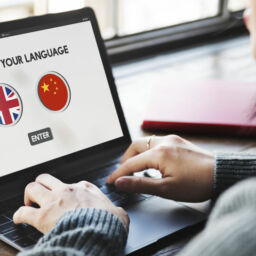

Ethics in translation involves a set of principles that guide a translator’s work. It includes accurately translating content while maintaining confidentiality, objectivity, and professionalism.
A translator working with documents and people must be careful in relations with others. They should not conflict with their interests or abuse one position. Mistranslations and errors lead to misunderstandings, administrative mishaps, or legal disputes.
Contents
What is translator ethics?
A translator should aim for accuracy and fidelity to the original text and avoid adding personal interpretations and opinions. Professional ethics require confidentiality when dealing with sensitive documents. They should not accept assignments that could compromise their impartiality or damage the trust between the translator and the client.
Translations must be precise and adapted to the cultural context of the audience. They should maintain a neutral tone, free from the translator’s political affiliations or personal views. Additionally, they should avoid literary flourishes that might twist the message.
Code of conduct in translation
A translator should not undertake translations that could undermine their professional dignity, e.g. illegal cases. Their attitude and work must confirm their reliability. There are several organisations worldwide and in specific countries that work to ensure translators’ ethics:
- International Federation of Translators
- International Association of Professional Translators
- American Translators Association
- National Association of Judiciary Interpreters and Translators
- Association of Translation Companies
- Chartered Institute of Linguists
- Australian Institute of Interpreters and Translators
- Argentine Association of Translators and Interpreters
- Translators Association of China (TAC)
Exceptional care
Every translation requires exceptional care. A sworn translator should approach their work diligently. If outsourcing tasks, they must personally verify the translations provided by others to minimise the risk of errors that could have serious legal consequences.
Before starting a translation, it is important to check for signs of unauthorised third-party interference in the content. It includes marks from mechanical or chemical text removal attempts, altered digits, different handwriting, varying ink colours, or missing standard elements of official documents. The translator should note all irregularities in their comments.
Translations of multipage documents should be securely bound to prevent the separation of pages. Each page must bear the sworn translator’s seal and signature.
Fidelity in translation
A sworn translator bears personal responsibility for the translation’s accuracy to the source document. The translation must reproduce the original content without adding, omitting, or altering words, sentences, or sections. Even minor changes might cause misunderstandings or wrong administrative decisions.
Handwritten notes, emblems, coats of arms, logos, photographs, signatures, cancelled duty stamps, and security features should be described in detail. Translators place annotations in italics in square brackets.
A translator only adds comments in italics with information necessary for understanding the content. It might be needed when there is no equivalent term due to different legal systems. Such notes should be brief, labelled “Translator’s note” in the target language and placed in square brackets.
If the text contains abbreviations, words, or phrases unfamiliar to the translator, they should be transcribed and noted as such. It is necessary to indicate they were copied without translation due to the inability to find their meaning in available terminology sources.
Impartiality in translation
A translator must not express personal views or accommodate client suggestions that could compromise the translation’s objectivity. If a conflict of interest arises, the translator is obligated to inform the client.
Professional confidentiality
A sworn translator cannot disclose any information learned during the translation process, including personal data, legally protected information, and details of legal proceedings and negotiations. Unauthorised disclosure has serious consequences.
Justified refusal of translation
A sworn translator can refuse a translation if they lack sufficient knowledge in the field, do not know the specialised terminology, or cannot prepare adequately within the required time. Refusal is also justified because of illness, accidents, or other serious personal reasons.
Timely completion of translation
If unforeseen circumstances prevent the completion of a translation in an agreed time frame, the translator must promptly inform the client.
Prohibition of unfair competition
Sworn translators must not engage in unfair competition practices, e.g. offering excessively low translation rates. Fees should comply with market regulations.



Continuous professional development
Continuous improvement of professional qualifications is a duty for sworn translators. They should constantly enhance their linguistic, translation, and skills by attending training sessions and industry conferences.
The translator must know their limitations and decline assignments beyond their competence. They should accept work only in fields that are familiar to them.
Sharing knowledge
Sworn translators should share their knowledge and experience with other translators and those entering the profession. Knowledge exchange and collaborative problem-solving increase professionalism within the industry.
Assistance in emergencies
Sworn translators should not refuse translations in emergencies, such as accidents, sudden illnesses, or situations threatening health or life.
Document’s security
The documents and data storage must be protected from destruction, loss, or unauthorised access by third parties. The sworn translator is responsible for putting appropriate protective measures in place.
Respecting intellectual property rights
Translating content involves careful handling of intellectual property. Translators must respect copyrights, trademarks, and patents tied to the original text. They cannot claim the original work as their own.
Ethical challenges of an interpreter
An interpreter may request basic information about the meeting’s subject and scope of activities before accepting an assignment. They should assess if they can adequately fulfil the task. It is their duty to ensure that the translation technique proposed by the client (consecutive, simultaneous, liaison) is appropriate for the situation.
Before starting, the interpreter should confirm mutual understanding with the foreign party. If the foreign party has poor language proficiency, hearing impairments, or uses an unfamiliar dialect, the interpreter should inform the client.
The interpreter can inform the foreign party that they are not an official of law enforcement or the judiciary and that they adhere to the principles of impartiality and confidentiality.
A sworn interpreter should use the same grammatical form as the speaker (usually the first person singular). When speaking on their behalf, they must indicate this (e.g., saying “the interpreter requests clarification”).
Ethical dilemma: Machine translation
Machine translation accelerates the process, but often lacks accuracy. Sometimes, it misinterprets context and distorts the meaning. Translators must remain vigilant and thoroughly review each machine-generated translation.
Automation errors can have serious legal or administrative repercussions. Translators may use CAT tools, but the widely available machine translation tools that do not ensure data confidentiality are prohibited.
Legal protection for translators
Despite the high responsibility they bear, sworn translators have certain legal protections. They can refuse assignments if lacking expertise or knowledge in a specific field. Additionally, they should obtain liability insurance to protect against the financial consequences of potential errors.
Translations for public administration
Our translation office provides translation services for public institutions and ensures professionalism at every stage of the process. The official documents we translate are faithful to the originals and meet all formal requirements. Our translators are qualified specialists with many years of experience that adhere to professional ethics.
We collaborate with sworn translators authorised to certify documents. We use modern data protection procedures. All information remains secure through data encryption technology.
We pride ourselves on our partnerships with numerous public institutions that trust our services. Check our references and contact us for a free quote.
Photo: AI















